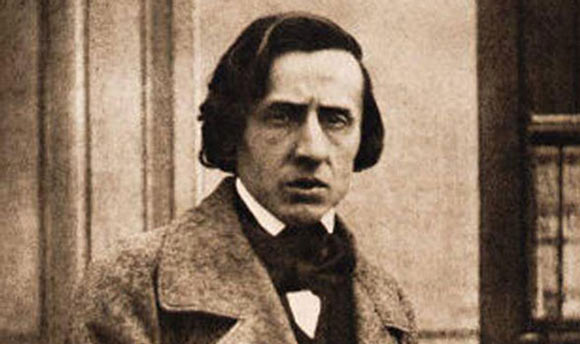
Frederic Chopin was one of the most influential virtuoso pianists of the Romantic Era. Chopin distinguished himself in the solo piano, although he occasionally wrote chamber music and instrumental ballades.
Frederic Chopin was born in the Duchy of Warsaw; on the 1st March 1810 (some reports also indicate that he was born on 22nd February 1810). Chopin first received instruction on the piano from his mother, and at the age of six, he started receiving formal instruction on the piano from Czech Pianist Wojciech Zywny. Chopin was extraordinarily talented on the piano, and he was soon labeled a child prodigy. At the age of seven, he gave his first public concert and by 1821, he wrote a polonaise in A-flat major, which is now widely regarded as his earliest surviving work. Chopin continued his education with Zywny till 1821. He was also enrolled in the Warsaw Lyceum, and it was there that he studied composition and music theory with the Silesian Composer Józef Elsner. In May 1825, Chopin performed and improvised on one of Ignaz Moscheles’s compositions; it was a performance so successful that he was asked to repeat it in the presence of the Emperor of Russia (Alexandar I), who presented the young Chopin with a diamond ring at the end of the repeat performance.
From 1827 to 1830, Chopin traveled Europe extensively and he attended many performances by Niccolo Paganini, Felix Mendelssohn and Friedrich Zelter. He also played in Vienna, where he premiered two of his pieces. In 1831, Chopin, on a visit to Paris, met many esteemed musicians, including Franz Liszt, Hector Berlioz, Ferdinand Hiller, and Alfred de Vigny. He also received favorable reviews from the music critic and composer Robert Schumann, who in response to Chopin’s “Allgemeine Musikalische Zeitung” exclaimed “Hats off gentleman! (Chopin is) a genius”. By 1832, Chopin had achieved celebrity status, as well as the honor and respect of his contemporaries and critics. Chopin also dedicated his “Etudes Op. 10” to Franz Liszt.
Today, over two hundred and thirty works of Chopin have been recorded and stored. Some compositions, mostly from his performances as a child prodigy, have been lost. Chopin was heavily influenced by Muzio Clementi and he based his own piano technique on Clementi’s technique. Other influences included Johann Nepomuk Hummel and Joseph Haydn. Chopin is also credited with inventing “instrumental ballades”, a name he gave to four large scale piano pieces that were characterized by several dramatic elements. Franz Liszt also used this name for some of his compositions. Chopin’s music consisted of a variety of Etudes, Ballades, Mazurkas, Nocturnes, Polonaises, Preludes, Rondos, Scherzos and Sonatas. Much of his work was also published after his death, these included Waltzes and Variations. He was credited for introducing the element of nationalism to music with his Mazurkas and Polonaises. Chopin was also known for his wondrous improvisational ability. Perhaps his most known works were his two Piano Concertos that he wrote in early 1830.
Before his death, Chopin compiled notes on a piano tuition method that he called “Projet de Methode”. In his last years, Chopin suffered from either Tuberculosis or Cystic Fibrosis. Frederic Chopin died on October 17, 1849 in Paris. His funeral was attended by over three thousand people, and according to historians, scores more would have attended had his family not restricted it.